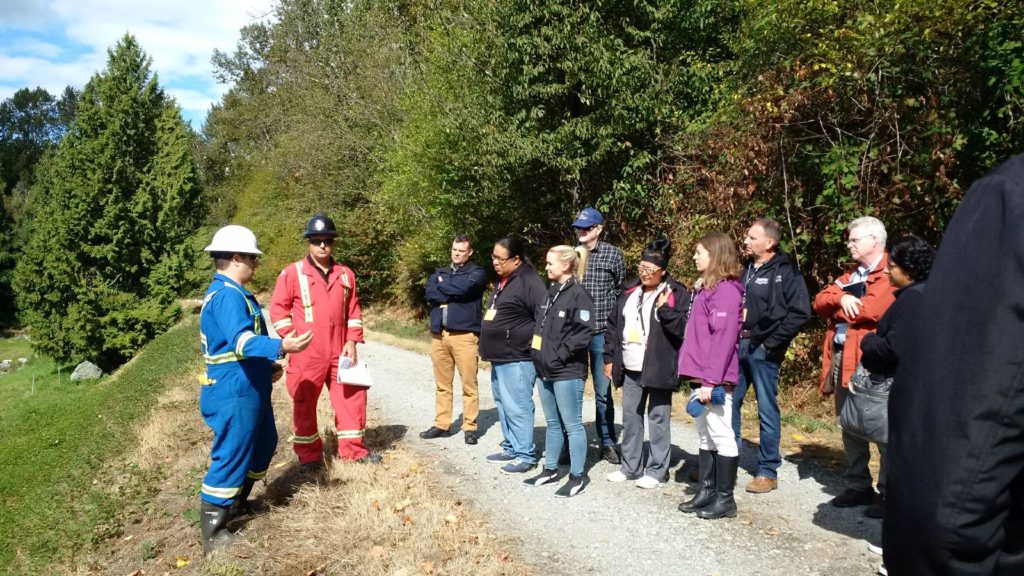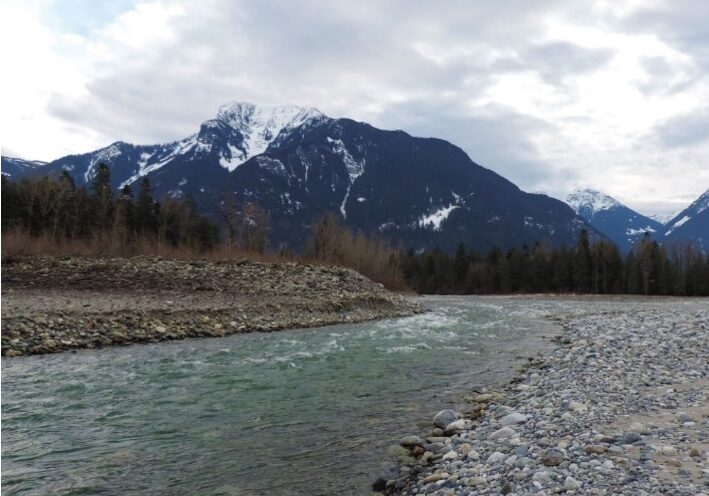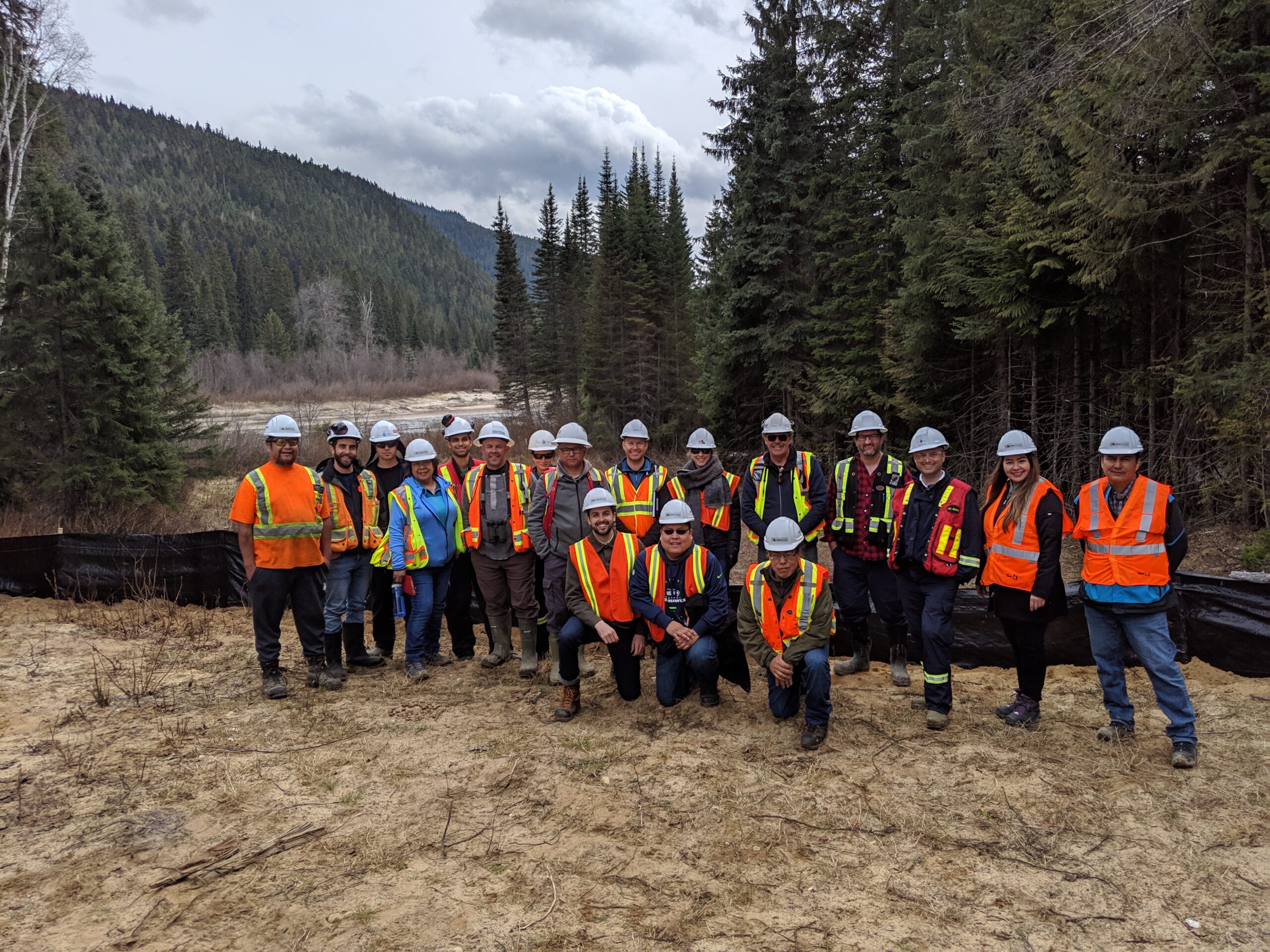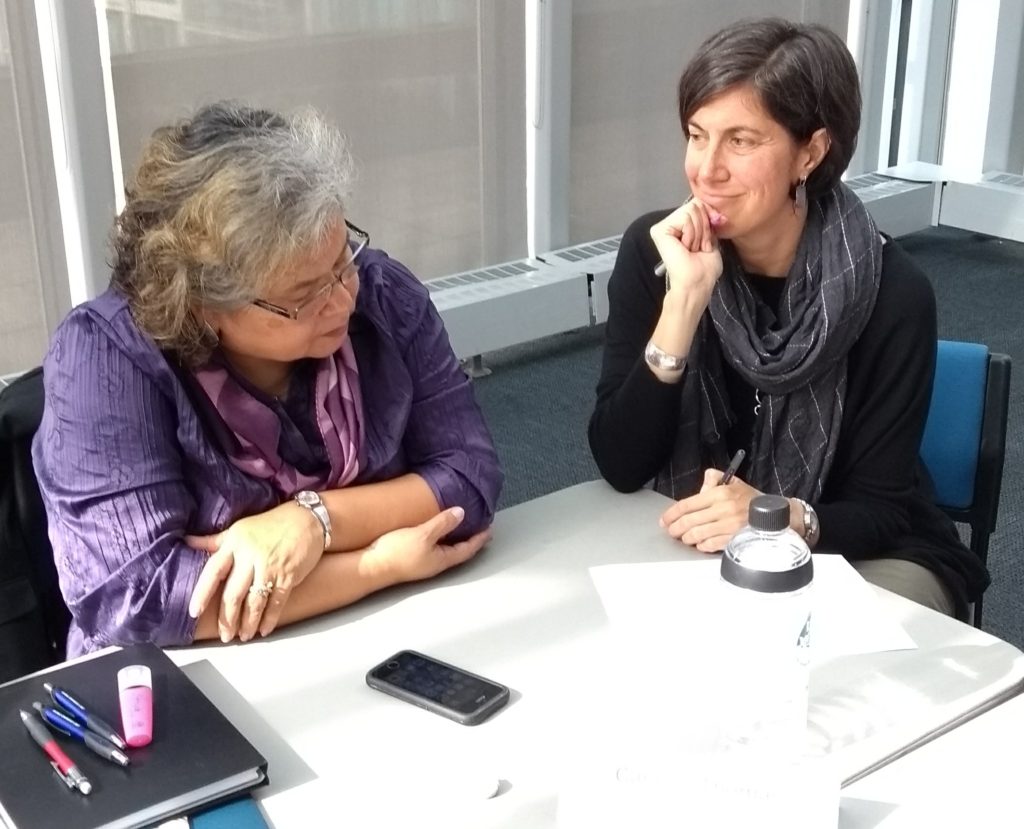Subcommittees
The Indigenous Advisory and Monitoring Committee (IAMC) forms and oversees subcommittees to work on specific issues or regional concerns. The subcommittees undertake work that requires more expertise or focus on a particular issue. These include Indigenous Monitoring, Marine Shipping, Socioeconomic and Engagement Subcommittee.

Indigenous Monitoring
The Indigenous Monitoring Subcommittee’s goal is to ensure Indigenous knowledge, values and perspectives are included in the monitoring, regulation, compliance verification and performance of the proposed TMX Project and existing pipeline. The Committee identified support for Indigenous monitoring and “getting boots on the ground” as an early and ongoing priority in its first year.
A groundbreaking Indigenous monitoring pilot program was developed by the Committee and the National Energy Board (NEB). This pilot established a framework for Committee monitoring and is informing a program to be implemented throughout the Trans Mountain Pipeline corridor.


Marine Shipping
The Marine Shipping Subcommittee focuses on the key concerns around marine shipping and related traffic, anchorage and operational spills. This Subcommittee engages with Indigenous communities and marine-based organizations to: explore and develop an Indigenous marine stewardship program; provide advice on Indigenous inclusion in spill response; and enhance Indigenous capacity in emergency prevention, preparedness and response.
A key priority for the Subcommittee is to identify opportunities that support Indigenous communities’ ability to protect their rights and interests relating to these potential impacts. It is important to learn from previous incidents, highlighting to regulators where key issues are not being addressed and working with them to seek solutions. This involves gathering information and improving relationships with marine-based organizations by attending several marine-related activities, training exercises, workshops and conferences.
Emergency Management
Since 2018 the IAMC-TMX has identified the importance of emergency management and response in Indigenous communities by bringing Indigenous leaders and technical experts together to implement two pilot projects and work towards common priorities as the group evolved into the Emergency Management Subcommittee (EMSC). EMSC priorities are to:
- Identify opportunities for greater Indigenous inclusion in Emergency Management
- Improve Indigenous communities’ emergency preparedness with an all hazards approach
- Inform the IAMC-TMX on issues related to Emergency Management
- Inform policy development.


Socioeconomic
The work of the Socioeconomic Subcommittee is focused in two areas: Mitigating the negative impacts of the five work camps associated with the expansion project in communities, and specifically reducing the potential for harm to Indigenous women and girls; and monitoring the economic participation of Indigenous peoples (procurement, employment, training, etc.) in the project and supporting the capacity of Indigenous communities to participate in these economic opportunities.
Two working groups have been established to address these issues. These are the Work Camps Working Group and Economic Development Working Group:
- The Work Camps Working Group engaged a prominent research company, the Firelight Group, which previously worked with BC First Nations to produce a comprehensive report: Indigenous Communities and Industrial Camps: Promoting Healthy Communities in Settings of Industrial Change. The insights gained from Firelight’s research will help the Committee work with relevant authorities to improve oversight of work camps along the pipeline corridor.
- The Economic Development Working Group monitors Trans Mountain’s compliance with the pipeline approval conditions as set by the NEB. These conditions require Trans Mountain to provide skills training to Indigenous communities and local and regional groups, and to provide communities and groups with employment and business opportunities should the expansion project go forward.

Operations
In March 2020, the Operations Subcommittee was formed with the intent of allowing the IAMC-TMX Committee to focus on high-level strategic discussions. The subcommittee supports and enables effective, efficient and strategic decision-making of the Committee, and ensures operational alignment with the approved strategic directions. It deals with operational items such as low-risk funding and budget decisions, agenda setting, engagement, work-planning and more.
The former Engagement and Grants and Contributions Subcommittee has been absorbed by the Operations Subcommittee.
